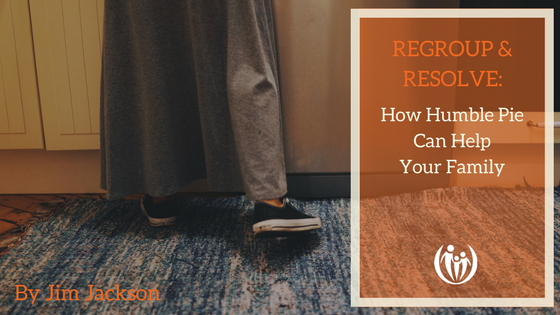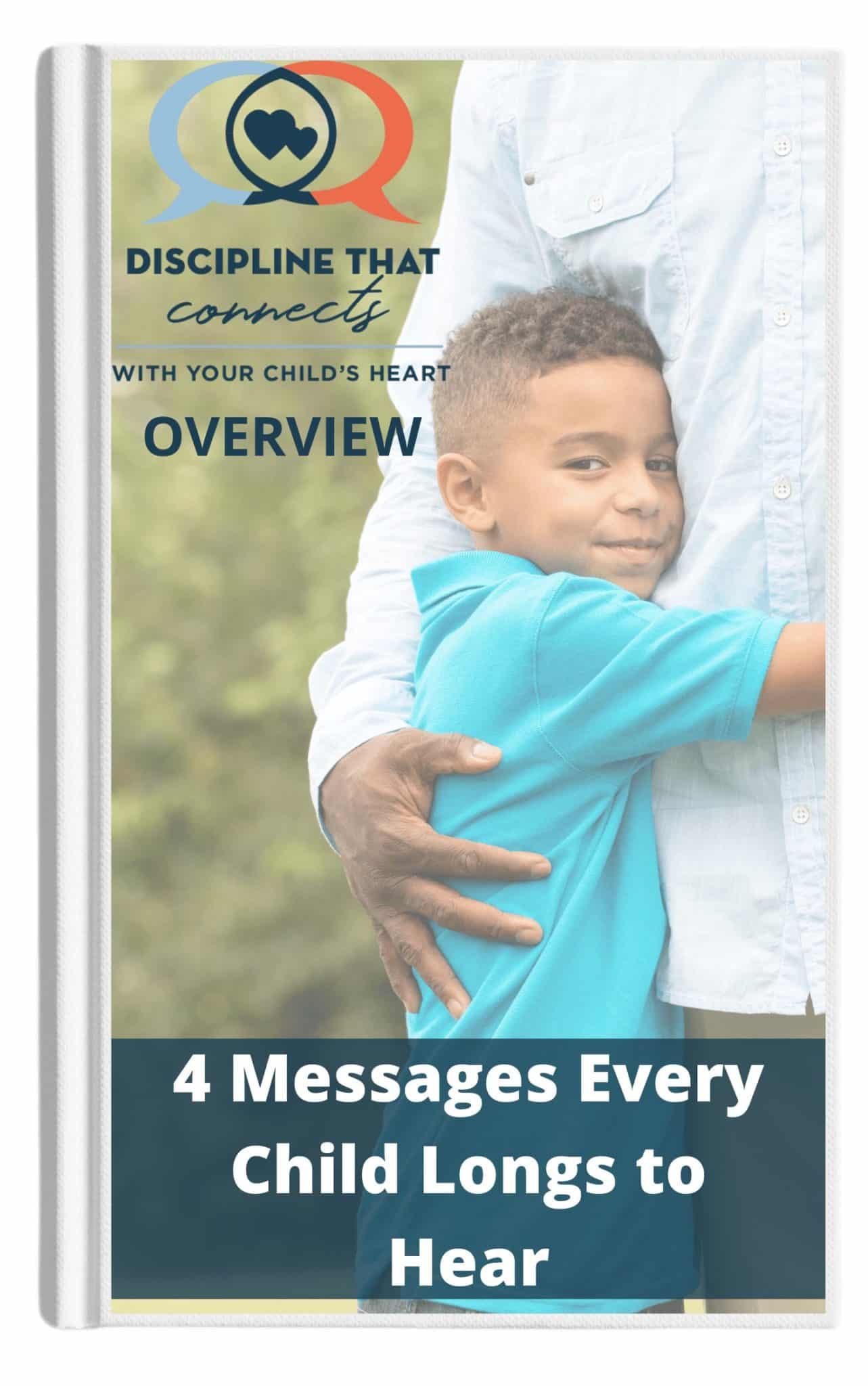
Regroup & Resolve

Every parent fails to deal perfectly with every parenting situation.
In other words, we all screw up sometimes!
Along the way we’ve discovered that what’s far more important than handling every parenting situation perfectly is to regroup, and resolve well. For it’s in resolving well that parents and children best learn and grow from their mistakes. Here’s a true story of resolving:
I (Jim) could not contain my anger at my twelve year-old son Daniel. He had just called me a “flippin’ idiot” because I wouldn’t give him a ride to a friend’s house. This was the last of several rude comments he’d made, and my patience finally wore thin. I erupted: “You selfish jerk! All you ever think about is yourself! Did it ever enter your mind that there are other people with other needs and that you are NOT the center of the universe? Not only will you not get a ride tonight, but you’re grounded for the week for being so rude!”
Daniel huffed some choice comments under his breath and sought the refuge of loud music in his room. I let him go and stood there shaking, somewhat satisfied that the yelling had stopped, but not quite sure what to do next.
Many parents stop here. They settle down and return to “life as usual.” The kids do too. But everyone tends to “walk on eggs” for a while, in order to avoid any further trouble. People do nice little things for each other, hoping that will make up for the outburst. However, if nothing is done to get to true resolution, resentment starts to build. Grudges are held. Relationships disconnect. We believe that returning to “life as usual” in this way is much like sweeping broken glass under the area rug on a hardwood floor. It looks good on the surface, but every time someone walks on it, it grates away at the floor and the rug. Soon it will wear through. The rug will be hard to patch and the floor will be hard to fix.
Relationships are no different. That is why learning to regroup and really resolve conflicts is SO important. Letting unresolved conflict eat away at our relationships makes them difficult or even impossible to repair.
The key to preventing this is to learn to regroup and resolve.
Most of us know how to regroup. We take deep breaths. We let time calm our emotions. We tell others what happened and even get advice for how to deal with the problems. All this helps us feel better in the short run. But if we don’t take the step to resolve, the glass is still under the rug.
Resolving is perhaps the most difficult of relationship skills. To resolve well requires an ability to identify, confess and ask for forgiveness when we hurt others. We have to learn to forgive what others did to hurt us. To do these things we have to let go of our defensiveness, take a deep breath, and apologize. The story continues…
Still standing in the kitchen, I reflected on what happened. My memory was a bit fogged so I asked Lynne, “What just happened? What did I say?” She called it the way she saw it. “He was pretty rude to you, but you weren’t any better.”
“Time for some humble pie,” I announced as I headed toward Daniel’s room.
I knocked on the door and entered to find my son on the bed, eyes closed and music blaring in his headphones. He ignored me. I grabbed a chair and just sat, waiting for Daniel to be ready. After a few uncomfortable moments, he blurted, “What do you want?”
“I want to apologize for how rude I was. In my anger, I said some pretty extreme things. I feel bad about it, and I’m hoping you’ll forgive me,” I answered.
My willingness to approach my son humbly and with a desire for resolution opened Daniel to a conversation about our dispute. We eventually forgave one another and made a constructive plan about consequences and resolution. More importantly, we both learned to be more respectful the next time.
When the commitment to regroup and resolve is firmly in place, kids grow up better equipped to build strong, well-connected relationships. They are a gift to a world that increasingly lacks conflict resolution skills. And their hardwood floors and area rugs last a long time!

4 simple messages.
1 simple framework.
Get the FREE ebook, and start your journey toward better, more connective discipline in your home.

